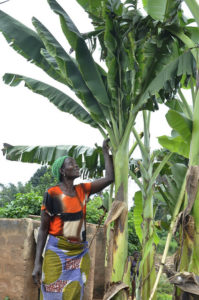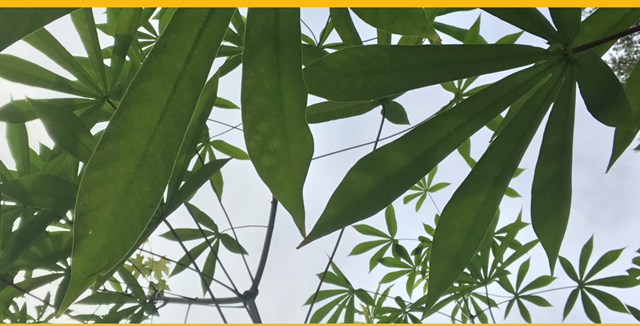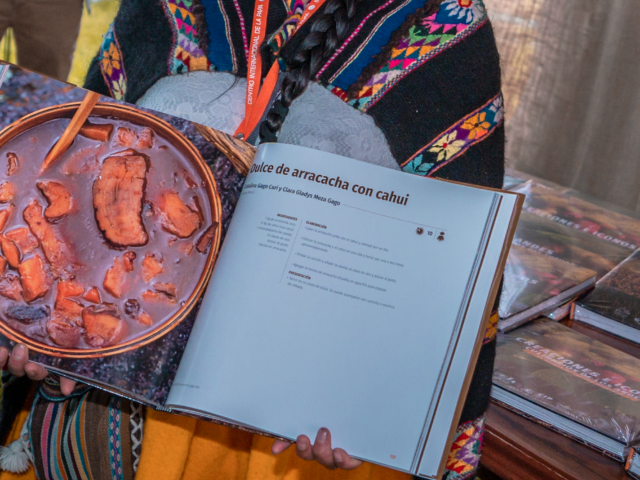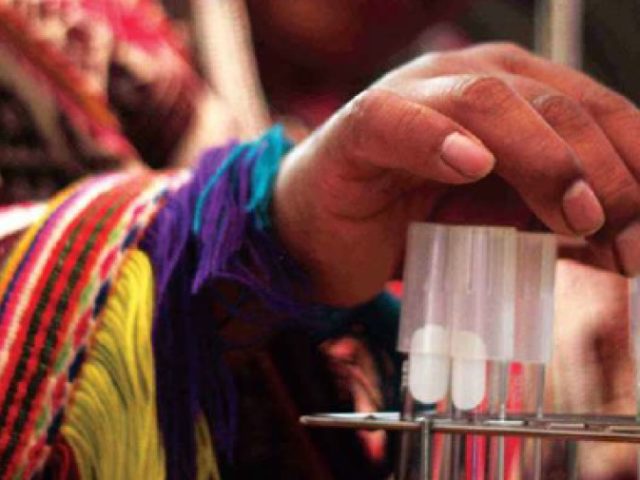Flagship project 3 (FP3) aims to close yield gaps of RTB crops arising from biotic and abiotic threats and to develop more resilient production systems, thereby strengthening food security and improving natural resource quality. It will generate outcomes that directly target the needs of a diversity of household typologies, result in the transformation of the livelihoods of rural women, and build the basis for RTB cropping systems for the next generation of farm households.
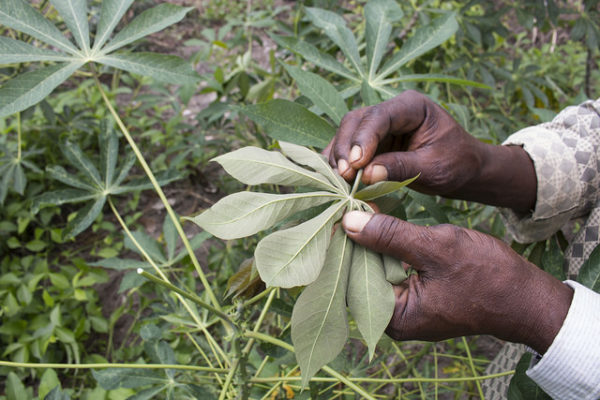
A Tanzanian farmer checks the underside of a cassava leaf for the presence of whitefly. Photo H.Holmes/RTB
Hence, FP3 addresses the following grand challenges as identified in the CGIAR Strategy and Results Framework:
Destructive pests and diseases and abiotic stresses compromise the food security of RTB crop-dependent populations
Several invasive and emerging pests and diseases of RTB crops cause yield losses of 80–100%, with devastating impacts on rural communities. Multiple endemic pests and diseases also drastically restrict attainable yields in all RTB crops and call for smallholder-adapted IPM, congruent with men and women farmers’ needs. RTB crops are often vulnerable to abiotic stresses, such as high temperature, drought, frost, and salinity, limiting the crops’ ability to realize their full yield potential.
Climate change
Climate change has mostly negative impacts on crop productivity, as a result of extreme weather events, higher rainfall variability, and increasing temperature, which lead to dangerous geographical shifts and higher abundances and outbreaks of pests and diseases. Overall crop yields have been predicted to fall by 10–50% in 70% of the studies conducted, although effects differ across crops. FP3 focuses on enhancing the understanding of the complex interactions between the effects of climate change on RTB crops, the pest and diseases that affect them, and the farming environments where they are cultivated.
The expansion of agriculture and land use intensification are leading to deforestation, habitat and biodiversity loss, soil erosion and landscape degradation, and reductions in critical ecosystem services.
RTB crops are produced primarily by smallholders, and cropping systems are frequently sub-optimal. Increased national production often comes from an increase in the planted area and reduced fallow periods rather than from increased productivity or efficient land use.
These challenges demand innovative, geographically representative, yet strongly focused research to deliver predictive models, methods, and products that support the preparedness and enable policymakers and end users to build resilient, sustainable, and climate-smart cropping systems. This is being achieved through research undertaken by FP3 that links closely with the other RTB flagships , as well as a wide range of international and national partners.
Clusters
FP3 is made up of six clusters:
| Cluster | Aim |
| CC3.1: Pest/disease management | Pilot novel approaches for modeling and managing chronic and invasive pests and diseases |
| CC3.2: Crop production systems | Develop and promote technologies for more productive and ecologically sustainable crop production systems |
| BA3.3: Banana fungal & bacterial wilt (Foc/BXW) | Develop approaches, detection tools and holistic and cost effective practices for managing and containing Foc and BXW |
| BA3.4: Banana viral diseases (BBTD)
|
Develop approaches, detection tools and holistic and cost effective practices for recovery from and containment of BBTD
|
| CA3.5: Cassava biological constraints, Asia/Americas
|
Strengthen response capacity for emergent biological constraints affecting cassava in Asia and the Americas
|
| CA3.6: Cassava biological threats, Africa
|
Develop and disseminate technologies for the sustainable protection of cassava in Africa
|
